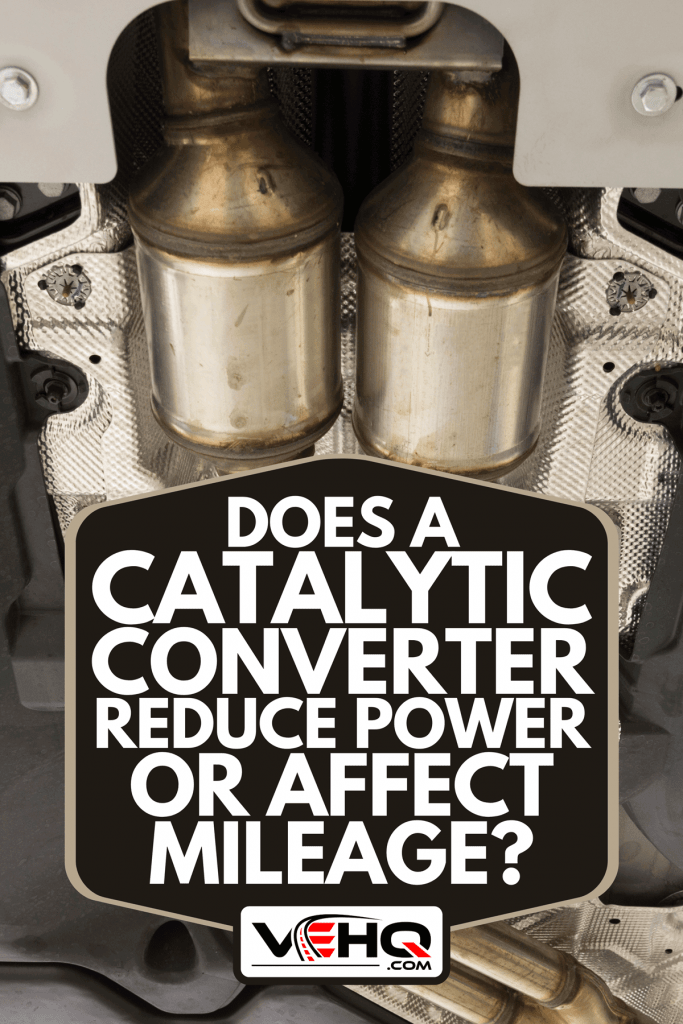Catalytic converters are installed in almost every gasoline vehicle in the United States. They are installed to help reduce emissions, but do they also reduce the power of your vehicle or its mileage? Well, we've researched the topic in-depth and have an answer for you.
Catalytic converters have been shown to reduce power in vehicles but only slightly. This is because they are making the vehicle's engine do extra work essentially putting a strain on the engine. However, a catalytic converter should not affect mileage or reduce power significantly unless it is working incorrectly.
Now you know that a catalytic converter might reduce power but shouldn't affect the vehicle's mileage, but keep reading as we elaborate on this further. We'll also answer some other questions you might have about a catalytic converter including how to tell if one is failing.
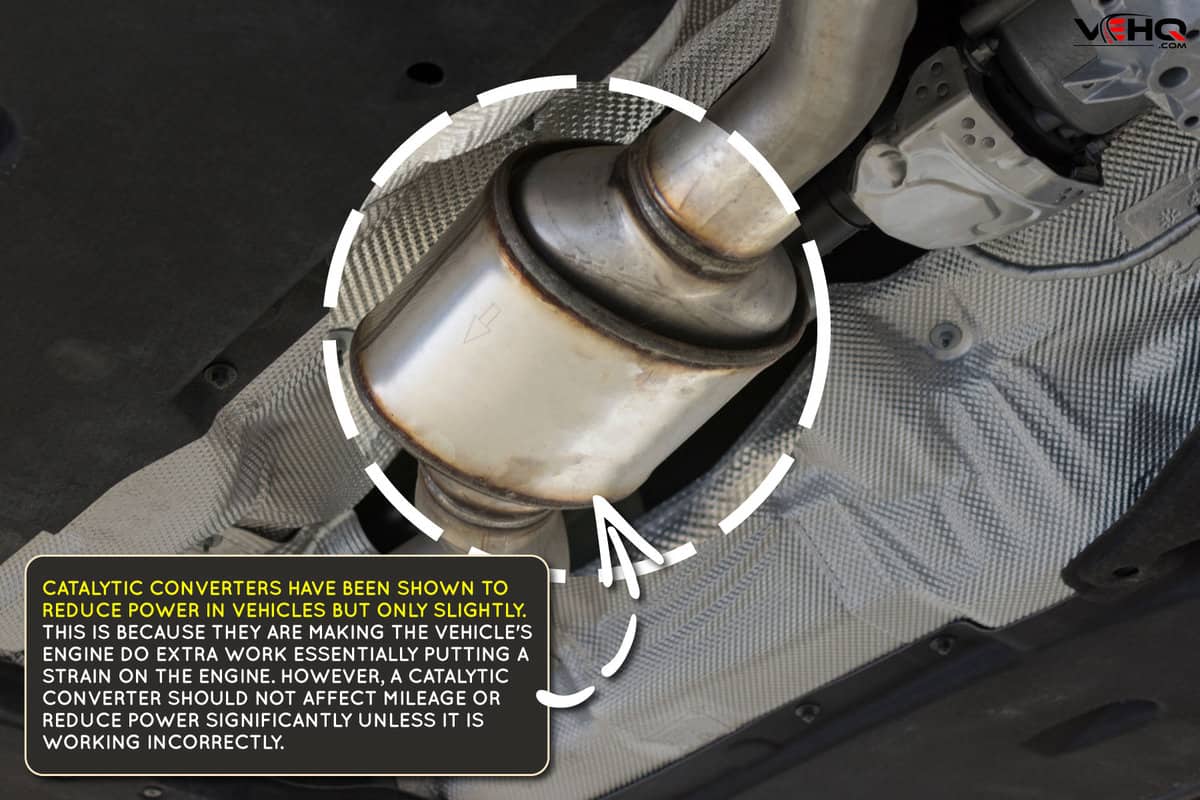
Catalytic Converters and Power
In order to understand why a catalytic converter might reduce power, you first must understand what a catalytic converter does. Catalytic converters convert harmful emissions into safe gases inside their catalyst. Converting the harmful emissions to safe gases prevents harmful emissions from being released into the air and harming the environment.
Any Reduced Power Is Negligible
A catalytic converter is restricting harmful emissions from exiting the exhaust. The emissions can't exit as quickly as they would if there were no catalytic converter in place. This can put a strain on the engine due to the backup pressure from the gases thus resulting in reduced power.
However, the amount of reduced power is negligible. Cars are designed to be equipped with catalytic converters, so it is unlikely you will notice any reduction in power at all.
There are high-flow catalytic converters available that allow the gases to flow more quickly which can increase horsepower but you'll unlikely notice a difference unless you have a supercharged or highly modified car.
Click here to see MAYASAF Universal Catalytic Converter, High Flow on Amazon.
You are most likely to see reduced power and mileage from your vehicle when the catalytic converter is not working properly or is clogged. However, there are some other signs of a failing catalytic converter too.
What are the signs of a failing catalytic converter?
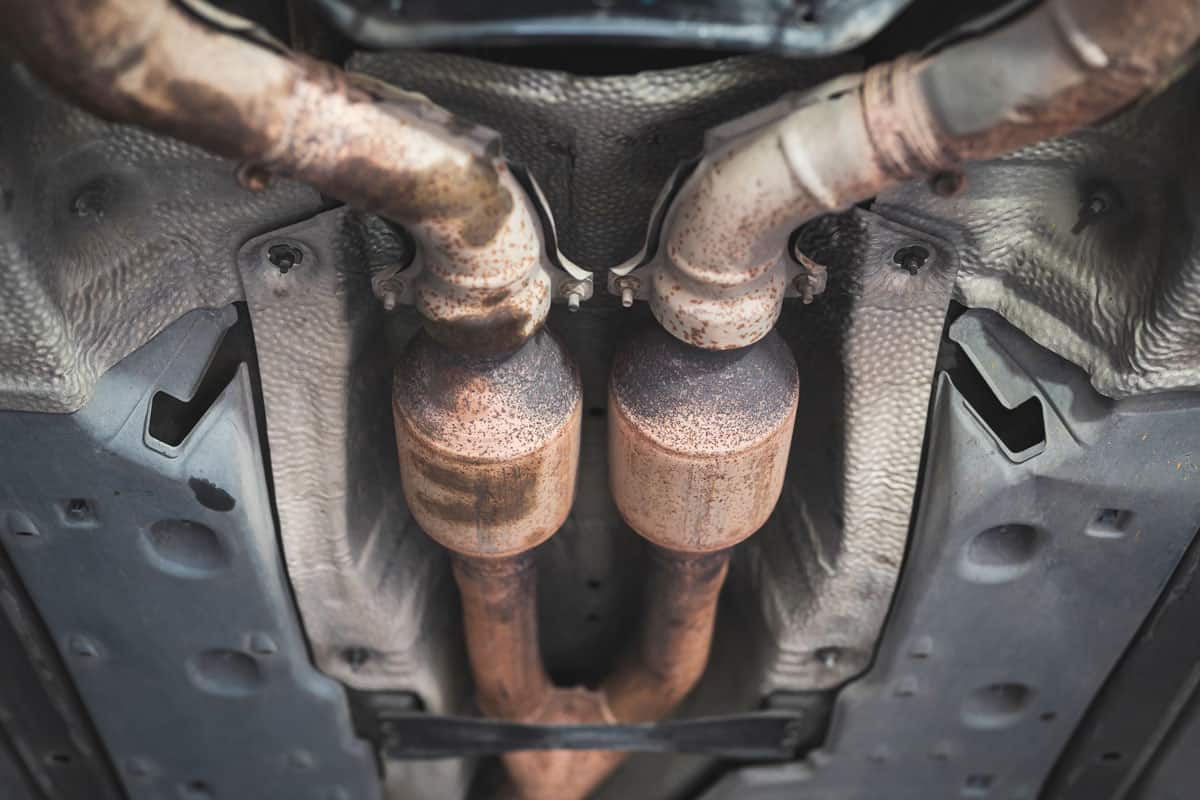
If you're experiencing reduced power or less mileage with your vehicle, this could be a sign that your catalytic converter isn't doing its job correctly. However, there are some more signs that could indicate your catalytic converter is failing. If you keep up with your cars routine maintenance, you can expect to get around ten years from your
Check Engine Light
Often the first sign there's a problem with your car is when the check engine light comes on. A number of issues can trigger a check engine light, and the catalytic converter failing is one of them. If the check engine light comes on and you're experiencing one of the other signs we've listed below, the catalytic converter might be to blame.
Reduced Acceleration, Power, and Mileage
You might also notice your engine is having a hard time working. A failing or clogged catalytic converter can cause a reduction in acceleration, power, or mileage. You might even have trouble starting your car at all.
A faulty catalytic converter isn't the only reason your car might be chugging. Check out our other article on the topic here: Why is my Car Chugging?
The Smell of Rotten Eggs or Sulfur
This one might be surprising, but if you start to smell sulfur or rotten eggs, it could be a sign you need to get your catalytic converter checked. The smell of rotten eggs is usually indicative of something being wrong with the fuel system in your car. If it's not your catalytic converter, it might be the fuel sensors or filters.
Traces of Black Smoke From Exhaust
A smell isn't the only way to identify a failing catalytic converter. You might also see black smoke from the vehicle's exhaust. A failing catalytic converter can cause traces of black smoke when you accelerate or decelerate quickly. However, you should keep in mind that a lot of black smoke is often a sign of something else.
Failed Emissions Tests
Not every state, city, or county requires a car to pass an emissions test, but for those that do, a failed emissions test can be a sign you've got a problem with your catalytic converter. Since the purpose of your catalytic converter is to stop harmful emissions from being released into the environment, it makes sense that if it's not working, you might not pass an emissions test.
Replacing a catalytic converter can be expensive, so it's best to try cleaning it first. There are multiple cleaning products available.
If you suspect your catalytic converter might be dirty, check out our other blog post for detailed instructions on how to clean it here: How To Clean A Catalytic Converter
Removing A Catalytic Converter
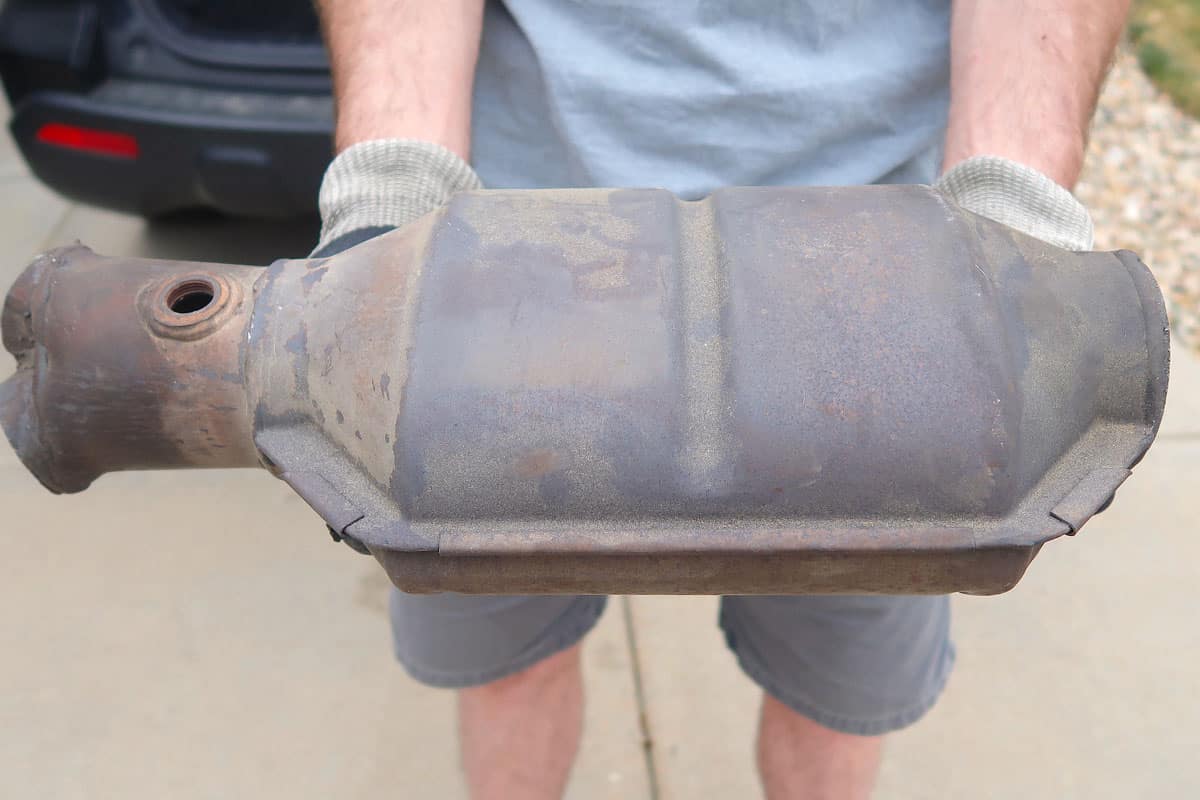
Introduced in the 70s, catalytic converters help protect the environment. Because of this, it is illegal to remove a catalytic converter that is functioning correctly. Removing a catalytic converter from a vehicle that was built with one in place can land you in trouble. Depending on the state you live in, you may even face large fines.
You'll likely see more problems than benefits if you remove your catalytic converter. In fact, modern cars are designed to operate best with a catalytic converter. You'll unlikely see any benefit from removing yours. Furthermore, removing your catalytic converter can cause your check engine light to come on and a slew of other issues.
Does removing catalytic converter improve MPG?
Removing a catalytic converter will not improve MPG. However, replacing an old or clogged one will. Catalytic converters do not affect gas mileage unless they are not working correctly, so removing one will not make a difference unless it wasn't working correctly, to begin with.
In fact, in some cases, removing the catalytic converter could cause an increase in fuel consumption.
Will removing catalytic converter hurt engine?
Since most cars now have computer systems involved in their design, removing your catalytic converter can cause the computer in your engine to throw codes. It may also cause issues with the sensors which can cause your engine to burn more oil and fuel. It may not damage your engine directly, but it can definitely cause problems.
Can I replace my catalytic converter with a straight pipe?
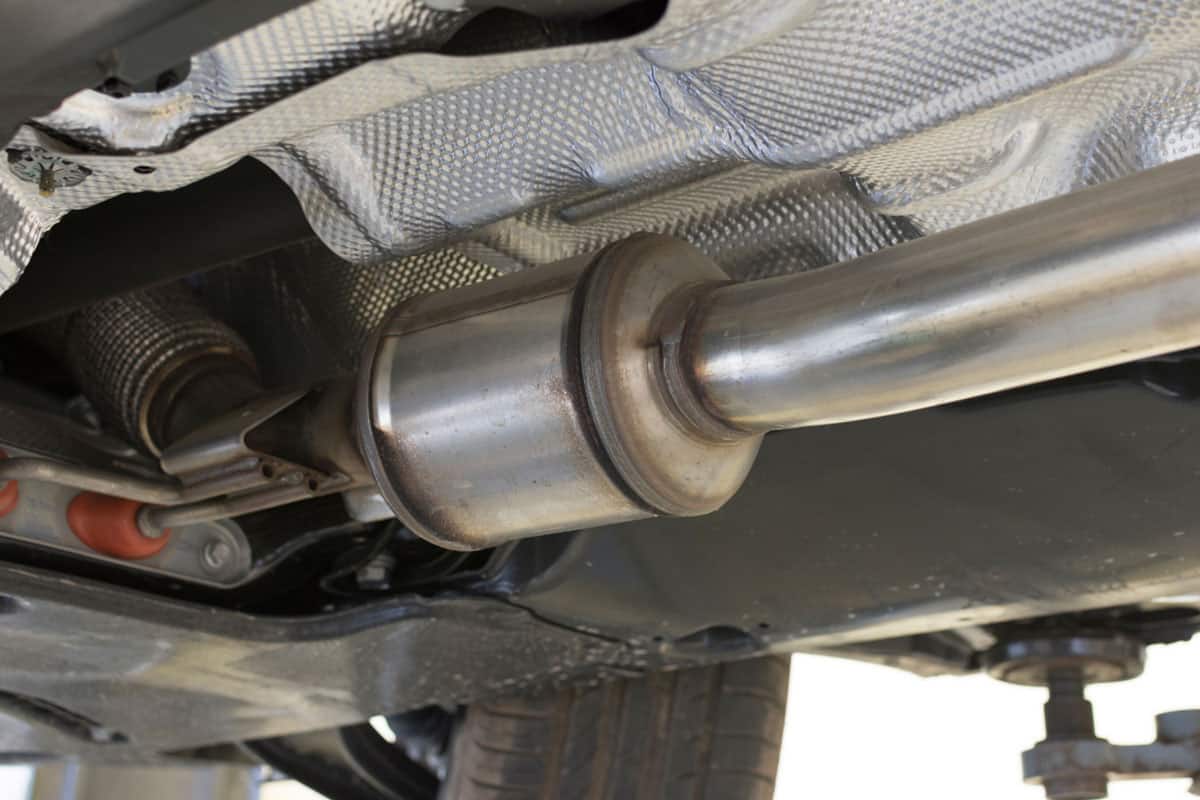
Technically you can, but as we mentioned earlier, in the United States, it is illegal to remove a catalytic converter from a vehicle. It's unlikely you'll find a repair shop that will do it for you, so you'd have to do it yourself. Moreover, if the car has a computer, it might trigger an error causing your car to adjust the amount of fuel it uses for the engine.
Removing or replacing the catalytic converter with a straight pipe will release harmful emissions into the air. The fumes are not only harmful to the environment, but to people as well.
Replacing a catalytic converter with a straight pipe is only recommended for testing reasons. If you're unsure whether the catalytic converter is the problem with your vehicle, you can test your theory by using a straight pipe.
Final Thoughts
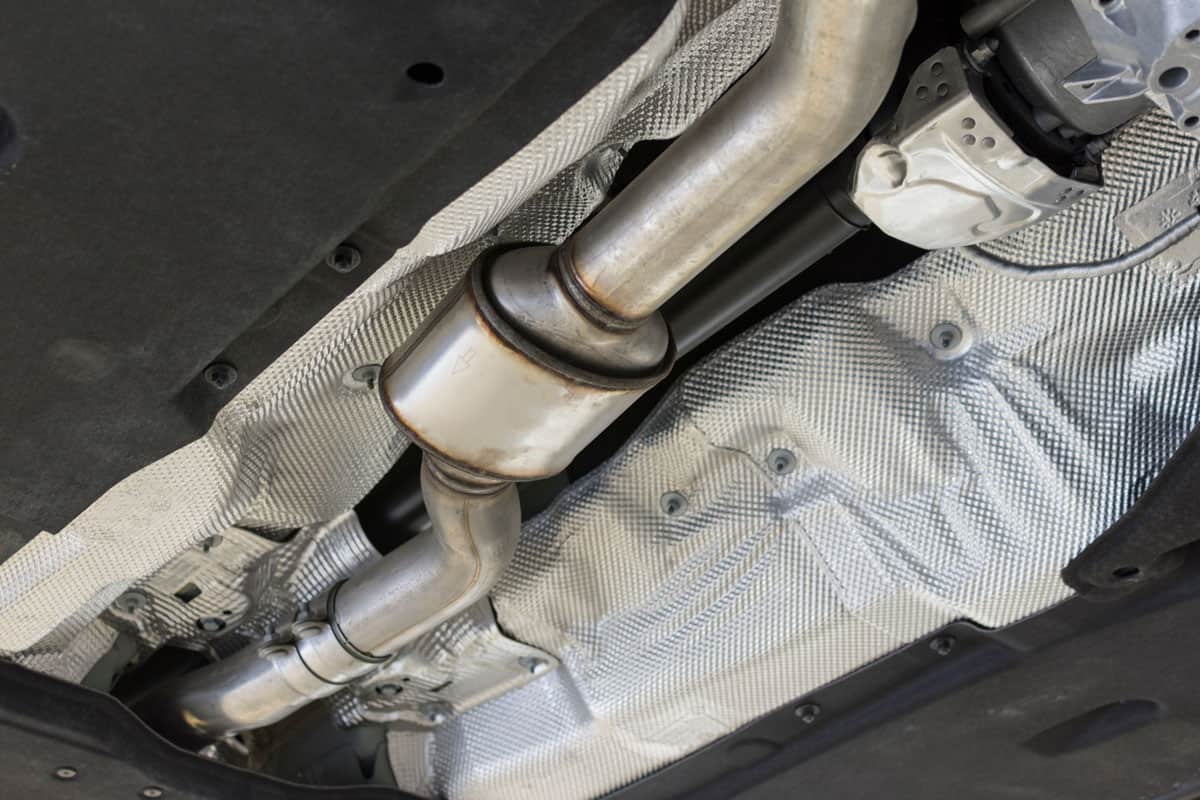
Catalytic converters are a crucial requirement for almost every vehicle. Though a catalytic converter might reduce the power of a vehicle, it is often by a negligible amount. A reduction in power or mileage is often the result of a clogged or failing catalytic converter. If you're experiencing power or mileage reduction, check for other symptoms your catalytic converter isn't working.
